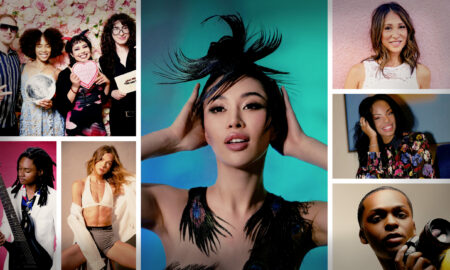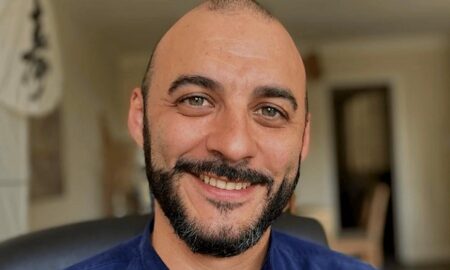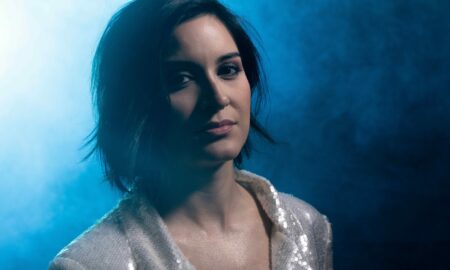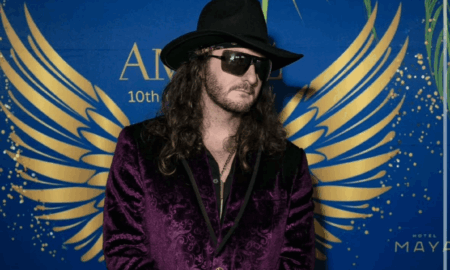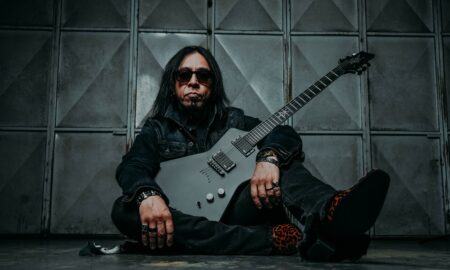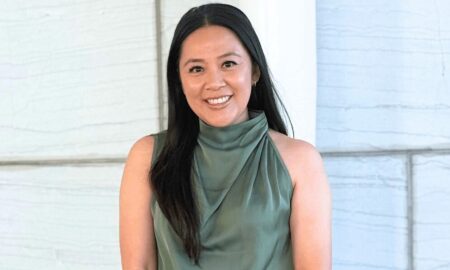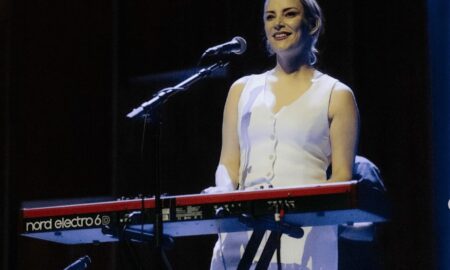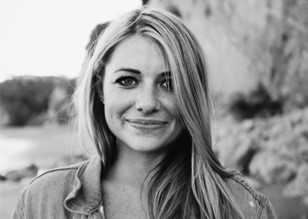

Today we’d like to introduce you to Ashley Eakin.
So, before we jump into specific questions, why don’t you give us some details about you and your story.
My career starts way back to middle school. I didn’t know it then, but I was born a filmmaker. I was always the one making the videos, holding the camera and directing my ‘talent’ – aka the neighborhood kids. But it took me a whole college degree to actually realize I wanted to pursue working in Film.
I went to San Diego State and pursued a degree in Journalism. I loved stories and investigating projects, but I quickly realized I did not want to work in the news and my interest shifted towards film. I decided to pursue a minor in the field. I always thought Hollywood felt too big and too glamorous for someone like me. I was born with a rare bone disease called Olliers and Maffucci Syndrome and I never imagine myself in this world, until one day a speaker visited our class and one of his arms was paralyzed. That was the moment it clicked for me – I could do this. So I went to work and started getting any and every internship and PA job I could get my hands on.
My first gig landed me with MTV’s Teen Mom which was quite an eye-opener to reality TV. I then transitioned into working for Ken Mok who created America’s Next Top Model with Tyra Banks. It was wild. We traveled to Jamaica, Bali, Macau, and Hong Kong while I was with the show – I had never travelled outside of the country prior to this. After three seasons, I learned I wanted to shift my focus to scripted TV or films and took a Writers Office Assistant gig on the NBC show “The Night Shift”. From there, I worked in Development at a production company Beacon Pictures, where I finally realized I wanted to be a director. If I am honest, I always tried to place myself as a writer or producer so I could be more behind the scenes. My fear of not being taken seriously as a woman and a person with a physical disability held me back.
But I pushed forward, directed my first short film EXO and realized – THIS is what I want to do. So I went to find a Director’s Assistant job and landed my gig working for Jon M. Chu for 2.5 years. I interviewed for the job and didn’t hear back for three weeks. I was convinced I didn’t get it — and also convinced myself why “I didn’t want it anyways” to soften the blow – but luckily to my surprise they called me back for the second interview. I was asked to read CRAZY RICH ASIANS and share my thoughts about how it could be adapted into a movie. The interview went great and my personality meshed well with Jon’s and the rest is history. I am so incredibly grateful that someone like Jon took a chance on me because the experience was invaluable. I was with him in Malaysia and Singapore for five months while we shot the film and it was truly the adventure of a lifetime.
In 2017, my life shifted when an opportunity fell in my lap – to tell my own personal story on camera for SoulPancake. In a strange mesh of coincidental circumstances, and actually trying to avoid going through with the video altogether, in December 2017 the video went live. In the piece, I talk about navigating social media and how my ultimate goal on Facebook was to hide as much of my disease as possible. My whole life I’ve been told the backhanded compliment that I have “such a beautiful face”. So when social media entered my life, it was this place of solace where if I cropped strategically, I could appear beautiful as a whole — not the girl with the bone disease. But the negative consequence of this was that I was missing opportunities to connect with people who also felt self-conscious or dealt with insecurities.
So in the video, I allowed myself to be vulnerable and expose my disease to the world. It’s this infamous moment of me taking off my jacket. I knew it would have an impact on my small community of people who have my rare disease, but I had no idea it would resonate with millions. The video instantly went viral with over 44 million views. My social media accounts blew up with hundreds and thousands of messages pouring into my inbox about their own insecurities and wanting to hide. To this very day, I still get messages from strangers telling me how my story affected them in some way. I even get recognized in the grocery store sometimes. Not only has this experience affected my personal growth as a human, it was a clear message to me that stories hold power – they can change the world. It’s always been my goal as a storyteller, but I don’t think I really grasped this until all the messages became personal. For weeks after my video went viral, I was in tears. I learned the power of vulnerability has a giant ripple effect.
During this time, Crazy Rich Asians was making waves for how the representation of Asians on screen has affected their community, and it was a profound mirror to my own journey. I am a firm believer that there are things that happen in life that are inexplicably serendipitous, and working on CRA is one of those things. The comments and letters my former boss is receiving are so similar to that one I received when my video went viral.
When I started getting messages from other young girls about resonating with my story and having it be the first time they saw someone who looked like them – for once in my life I felt proud to be a figure in my community and see my disease as strength, not something to be ashamed of. Seeing yourself represented on screen teaches self-love. I once heard media described as radiation – the more you consume the more you believe what you see is “real life”. It even makes you form opinions about things you’ve never experienced or came into contact with. So if you’re always seeing beautiful ‘normal’ people in TV and movies, you’re going to start feeling like you don’t belong if you don’t fit into that box. Which brings me to my long-term goal as a storyteller, to represent people with disabilities or physical differences in media. I think it’s important to normalize differences.
That is my goal as a storyteller – to shatter fear and create empathy. It’s the most powerful tool we can utilize in our medium. It literally affects how we live our lives, how we see others and even ourselves. The small stories alone might not change the world, but they are part of a much bigger picture that gradually makes headway to accurately represent the diverse world we live in with richly diverse people and stories. I directed a piece when I was abroad called THE DETAILS which also encompasses some of these themes and features Henry Golding and Awkwafina.
In July 2018, I quit my job working for Jon Chu and decided to pursue my own projects and I directed a Short Film called BLUE which examines social media and the illusion of perfection. It’s a romantic adaptation of my own story. It is currently on AmazonPrime and an official selection in the 2019 LA Shorts Film Festival.
This year I also got accepted in the AFI Directing Workshop for Women. They choose eight women per year to make a short film in their program. It’s been an incredible experience so far. We just completed production the end of July. It explores the complexities of dating and having a physical disability. It’s fun, quirky with a lot of heart. I’m really excited about this one.
We’re always bombarded by how great it is to pursue your passion, etc – but we’ve spoken with enough people to know that it’s not always easy. Overall, would you say things have been easy for you?
This industry is incredibly tough. I always tell newcomers – if you have another thing you really love doing TOO, do that thing. It’s almost impossible to survive with the way the industry is set-up. I have moved all over the world, relocated at the drop of a hat, lived with family, friends, slept on couches, missed weddings, birthdays, graduations. The list goes on and on. The sacrifice is ginormous, but the excitement and purpose I get out of creating films is unparalleled. For me – this really is my only path so I will pursue it until I physically can’t.
So, what’s next? Any big plans?
I am really hoping to create waves in the disability space for Film and TV. My dream is to create a coming-of-age film with a female protagonist who has a physical differences or disability. My bone disease is so rare, so I am not banking on someone to have the same physical differences, but I would love for it to be someone who has dealt with the same complexities and struggles.
I truly want to change the way people think about the word disability. That’s the big dream – to disrupt the narrative and create more accurate portrayals of people who happen to live with a disability. It used to be an offensive bad word for me, but it’s something I have worked through and realized I was born into a society of ableism. I, myself, was an ableist and I didn’t even know it. It’s wild. I think a lot of people don’t realize it’s just part of culture. But I do believe STORIES are the way through and we have to get studios and executives behind us to believe that people want to hear what we have to say.
The interesting thing to me is we’re all one step away from becoming disabled. A car accident, climbing accidents, illness. But our society chooses to ignore it and just hope it doesn’t hit them. But the ironic thing is we are all aging – we are all going to lose our functionality or become “disabled”. And I am hoping to open people’s eyes to this issue.
Contact Info:
- Website: www.shortfilmblue.com
- Instagram: @asheakin
- Facebook: Facebook.com/Ashley.Eakin
- Twitter: @asheakin
- Other: vimeo.com/alefilms








Suggest a story: VoyageLA is built on recommendations from the community; it’s how we uncover hidden gems, so if you or someone you know deserves recognition please let us know here.

